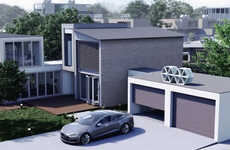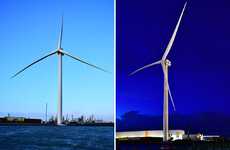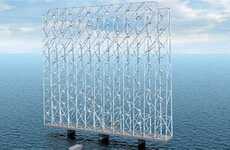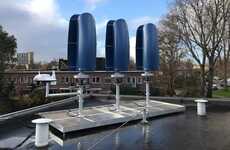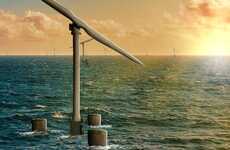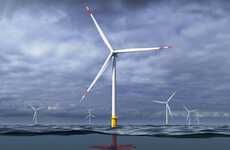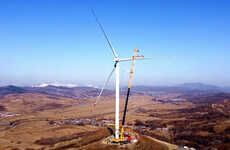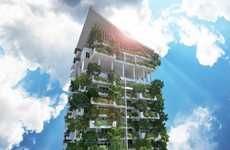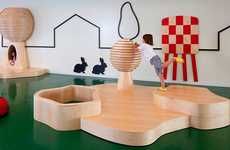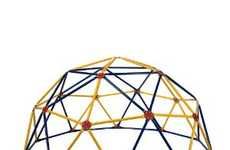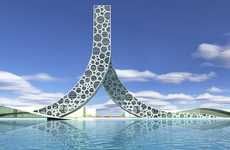
The Siemens B57 Blade Design Can Power Up to 1.8 Million Homes
References: discoversiemensafrica & gizmodo
The Siemens B57 blades bring forth a new approach to wind turbine design. Wind turbines have the potential to be extremely powerful, and moreover extremely relevant insofar as green energy production goes. Entire cities may run on the technology if enough force is produced, and these Danish implements promise to accomplish just that.
The B57 blades are made of epoxy resin and balsa wood. Its complex configuration deliberately excludes joints and bolts so as to make the wings lighter. At 75 meters long the propellers can span approximately 18,600 square meters at 180 MPH. These considerable measurements will advance the wind turbine industry in its entirety, and if all goes according to plan, they may help to power 1.8 million abodes by the year 2017.
The B57 blades are made of epoxy resin and balsa wood. Its complex configuration deliberately excludes joints and bolts so as to make the wings lighter. At 75 meters long the propellers can span approximately 18,600 square meters at 180 MPH. These considerable measurements will advance the wind turbine industry in its entirety, and if all goes according to plan, they may help to power 1.8 million abodes by the year 2017.
Trend Themes
1. Eco-friendly Energy Production - The Siemens B57 blade design represents a shift toward more sustainable and efficient energy production.
2. Innovative Materials Science - The use of epoxy resin and balsa wood in the B57 blades further opens up possibilities for sustainable and lightweight materials in various industries.
3. Increased Wind Energy Capacity - The B57 blades' ability to potentially power 1.8 million homes signals a trend toward more reliable and scalable wind energy production.
Industry Implications
1. Energy - The B57 blades could disrupt the energy industry by providing more efficient and environmentally friendly wind energy solutions.
2. Materials - The innovative use of epoxy resin and balsa wood in the B57 blades could have implications for lightweight and durable materials in industries such as aerospace and transportation.
3. Construction - The potential for wind energy to power entire cities could open up opportunities for construction companies to build more sustainable and energy-efficient structures.
5.6
Score
Popularity
Activity
Freshness


